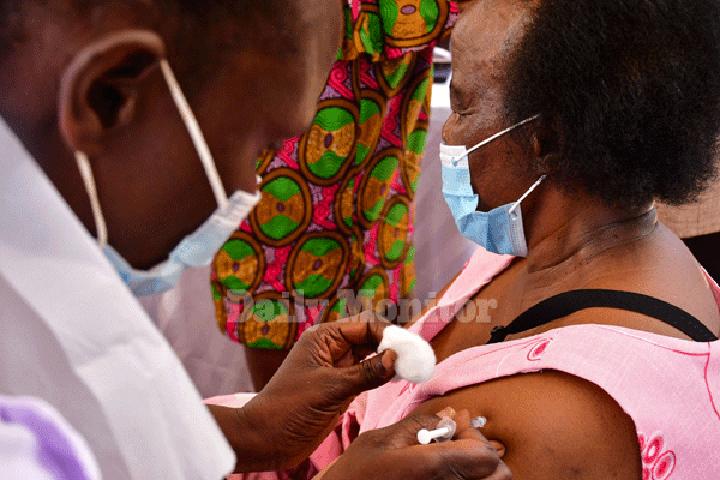Africa-Press – Uganda. As Covid-19 vaccination picks up in the country, emerging evidence linking the AstraZeneca vaccine to rare blood clots in recipients in foreign countries is threatening the drive.
A total of 169 cases of blood clots in the brain and another 53 cases in the lower parts of the body (abdomen) had been reported by recipients of the vaccine in European countries by April 1, according to European Medicines Agency (EMA).
The British Broadcasting Cooperation (BBC) reported that 79 people had suffered rare blood clots after vaccination by the end of March in the United Kingdom – 19 of whom had died.In Uganda, no such cases of blood clots after vaccination have yet been reported among 176,469 recipients of the vaccine, but there are mild side effects such as fever and headache, according to the Health minister, Dr Jane Ruth Aceng.
Dr Henry Ddungu, an expert in blood disorders at Uganda Cancer Institute, told Daily Monitor yesterday that unlike usual cases of blood clots that doctors have treated for a long time, the vaccine-mediated clots happen in abnormal parts of the body.
He said the blood clotting usually happens within 4-24 days after vaccination but that it is treatable.“It is not the usual clotting that people think. It is very rare but when it occurs, it causes clots in abnormal places. For example, clotting in the big vein (blood pathway) of the brain, in the main vessels of the intestines or the lungs,” Dr Ddungu said.
He added: “It is an immune-mediated reaction, which leads to a reduction in the levels of platelets, while increasing clotting. It happens after someone has been vaccinated.”Platelets are small, colourless cell fragments in our blood that form clots and stop or prevent bleeding.
What to do
Blood clots can also be caused by injuries, use of contraceptives and heart diseases, according to mayoclinic.org
“If after vaccination, someone presents with a lot of headache, dizziness, feel acute abdominal pain or shortness of breath, or one of their limbs gets swollen, such a person needs to go to hospital,” Dr Ddungu explained.
He said after the person has come to hospital, there are tests done such as complete blood count, which determine the number of platelets in the body.
“If the numbers are too low, then the doctor will start suspecting a possible reaction to the vaccine. With this, the patient should be transferred to a specialist to handle. It is not treated with usual drugs for other blood clots such as heparin (one of the drugs). We tell people not to use heparin because they react to it. But we know how to handle and the condition is treatable,” the expert adds.
According to Dr Ddungu, the incidence is low when compared to more than 200 million doses of the vaccine administered globally.
The World Health Organisation’s advisory vaccine safety panel said last Wednesday in a statement that although a blood clot link was “plausible” it was “not confirmed” and the cases were “very rare” among 200 million people vaccinated with AstraZeneca globally.
What WHO says
“Based on current information, a causal relationship between the vaccine and the occurrence of blood clots with low platelets is considered plausible but is not confirmed. Specialised studies are needed to fully understand the potential relationship between vaccination and possible risk factors,” the WHO statement reads.
The EMA has, however, recommended that blood clots and low blood platelet count be listed among the Jab’s possible side effects.
Typical side effects of the vaccine being reported in Uganda include pain at the injection site, fever, fatigue, headache, muscle pain, according to Dr Alfred Driwale, the head of immunisation programme at Ministry of Health.






